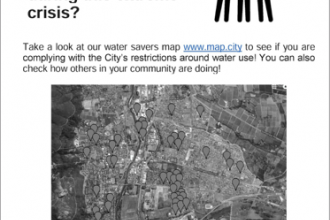Chapter 13: (Real) behavior meets (real) institutions: towards a research agenda on the study of the commons
"Chapter 13: (Real) behavior meets (real) institutions: towards a research agenda on the study of the commons" in A Research Agenda for New Institutional Economics. Elgar Research Agendas. Edited by:Claude Ménard and Mary M. Shirley. 2018.
Abstract Chapter 13:



